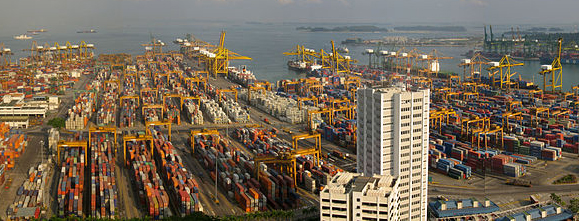Stephanie Lieggi
October 1, 2015
On September 29, 2015, the James Martin Center for Nonproliferation Studies (CNS) hosted a roundtable discussion in Jakarta entitled “Forecasting Industrial Development and Dual-Use Capabilities in Southeast Asia.” The event was funded in part through the support of the US Naval Postgraduate School’s Project on Advanced Systems and Concepts for Countering WMD (PASCC). The roundtable discussion provided an opportunity to identify industrial sectors in the region where the manufacture of dual-use commodities are becoming more prevalent.
Report on a Roundtable Discussion in Jakarta with Regional Experts
A wide variety of participants with knowledge of growing industrial sectors in the region attended the one-day roundtable. Although the majority of participants were Jakarta-based, most had an understanding of not just the current status of industry in Indonesia but also in ASEAN more generally. The roundtable also included two Singapore-based experts with detailed knowledge of the growth of dual-use commodities in the region.
Discussion Topics
- Identification of current industrial sectors in the region now incorporating dual-use technologies or those with the potential of manufacturing dual-use technologies;
- Status of national trade management systems in the region and their capacity to deal with dual-use commodities;
- Expected growth sectors in the region over the next decade and trends in acquisition of dual-use commodities; and,
- Development of cutting edge technologies in the region and their dual-use implications.
The discussions in the roundtable provided a clearer picture of the regional understanding of the future of industry and dual-use commodities. Through these productive discussions, CNS experts have been able to refine their assumptions about the growth in dual-use commodities and better identify key industrial sectors in the region. The input from the participants also provided guidance on how best to shape recommendations for regional actors and international partners aimed at improving the management of sensitive materials in the region over the next decade.
Industries with New Technology
The lack of effective trade controls in the region was viewed as a growing concern as dual-use technologies become more ubiquitous. Sectors of growth noted by regional participants in our discussion included:
|
|
Participants also noted that ASEAN has already laid the groundwork for developing more advanced technologies. The region currently has ongoing activities related to software development, medical research, advanced engineering and manufacturing (including additive manufacturing), and fundamental research.
Future Meetings
The CNS event also proved to be a success in raising awareness of the issue of dual-use commodities in the region. Many expert participants noted that the discussions helped them gain a better understanding of the challenges facing the region and commented that it would be helpful for CNS to hold this type of meeting on a regular basis to increase awareness of the dual-use challenge in the region.

